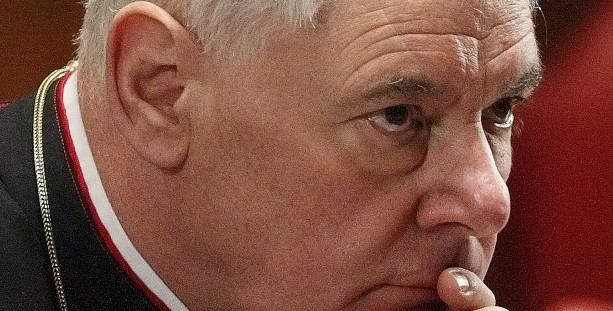Earlier this week Pope Benedict XVI appointed a new prefect of the Congregation for the Doctrine of the Faith (CDF), Archbishop Gerhard Mueller of Regensburg, Germany. This is the same post Pope Benedict held until he was elected pope in 2005.
Why is this position so important ?
Founded in 1542, the office was originally called the Sacred Congregation of the Universal Inquisition. Its was essentially an answer to the protestant reform. It’s job was to stamp out any teachings or practices in the Roman Catholic Church that were not in line with Church teaching. This is the office often erroneously associated with the Spanish Inquisition, and the earlier medieval inquisition.
While they all bear the word “inquisition” in their title, the Spanish Inquisition began in 1480 to stamp out any trace of Judaism among Christian converts in the kingdom of Spain and was under direct control of Queen Isabella and King Ferdinand. The medieval inquisition was under control of local bishops and at one point the pope, in attempt to stamp out movements promoting heresies.
In 1908 Pope Pius X changed the congregation’s name to the Sacred Congregation of the Holy Office. Pope Paul VI changed that name to the present name in 1965. The office’s madate is to uphold the teachings of the Roman Catholic church. It is this office that issues warnings about writings and teaching of errant theologians, statements regarding schismatic groups, and publishes guidelines about various church practices.
Within the Congregation for the Doctrine of the Faith is a commission called “Ecclesia Dei” or “Church of God.” This commission has one job, that is to engage in dialogue with the Society of Pius X (SSPX), the traditionalist association founded by Archbishop Marcel Lefebvre. The head of the CDF is automatically the head of the Ecclesia Dei commission, a role getting more attention in recent months as talks with the SSPX appear to be moving more than ever before.
Who is Gerhard Mueller
Archishop Mueller is, like Pope Benedict, a scholar. He received his doctorate in theology from Freiburg University. His thesis was directed by now-Cardinal Karl Lehmann. After his ordination to the priesthood he spent four years working in parish and teaching high school.
He returned to University for post-doctoral studies, also directed by Cardinal Lehmann. According to the Diocese of Regensburg, his academic research focuses on ecumenism, modern age theology, the Christian understanding of revelation, theological hermeneutics, and ecclesiology. He taught the Ludwig –MaximilianUniversityinMunichuntil his appointment as bishop of Regensburgin 2002.
Archbishop Mueller has authored more than 400 works. Perhaps the best known is “Catholic Dogmatics: for the Study and Practice of Theology” He also co-authored a book called “On the Side of the Poor” with Dominican Father Gustavo Gutierrez.
His ties to Pope Benedict go back to 1998 when he began serving on the International Theological Commission, which was led by then-Cardinal Ratzinger. In 2008 Mueller helped establish the Pope Benedict XVI institute, which is publishing a complete collection of words by Joseph Ratzinger/ Pope Benedict XVI, at the pope’s request.
During his time as bishop of Regensburg he came under fire for reinstating a priest who had been accused of child molestation. The priest’s therapist said he was longer a threat, however that priest was later arrested on additional abuse charges. He apologized for that decision and publicly committed to treating any and all cases of alleged abuse with full transparency.
His brother bishops have expressed their approval of his appointment to the head of the doctrinal congregation. Cardinal Christoph Schoenborn is reported as saying Mueller is “excellently suited and prepared” for this new role, while the president of the German Bishops' Conference, Archbishop Robert Zollitsch, said he has a "successful, sensitive approach in ecumenical affairs."
---
Photo Courtesy of CNS 